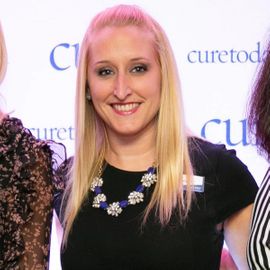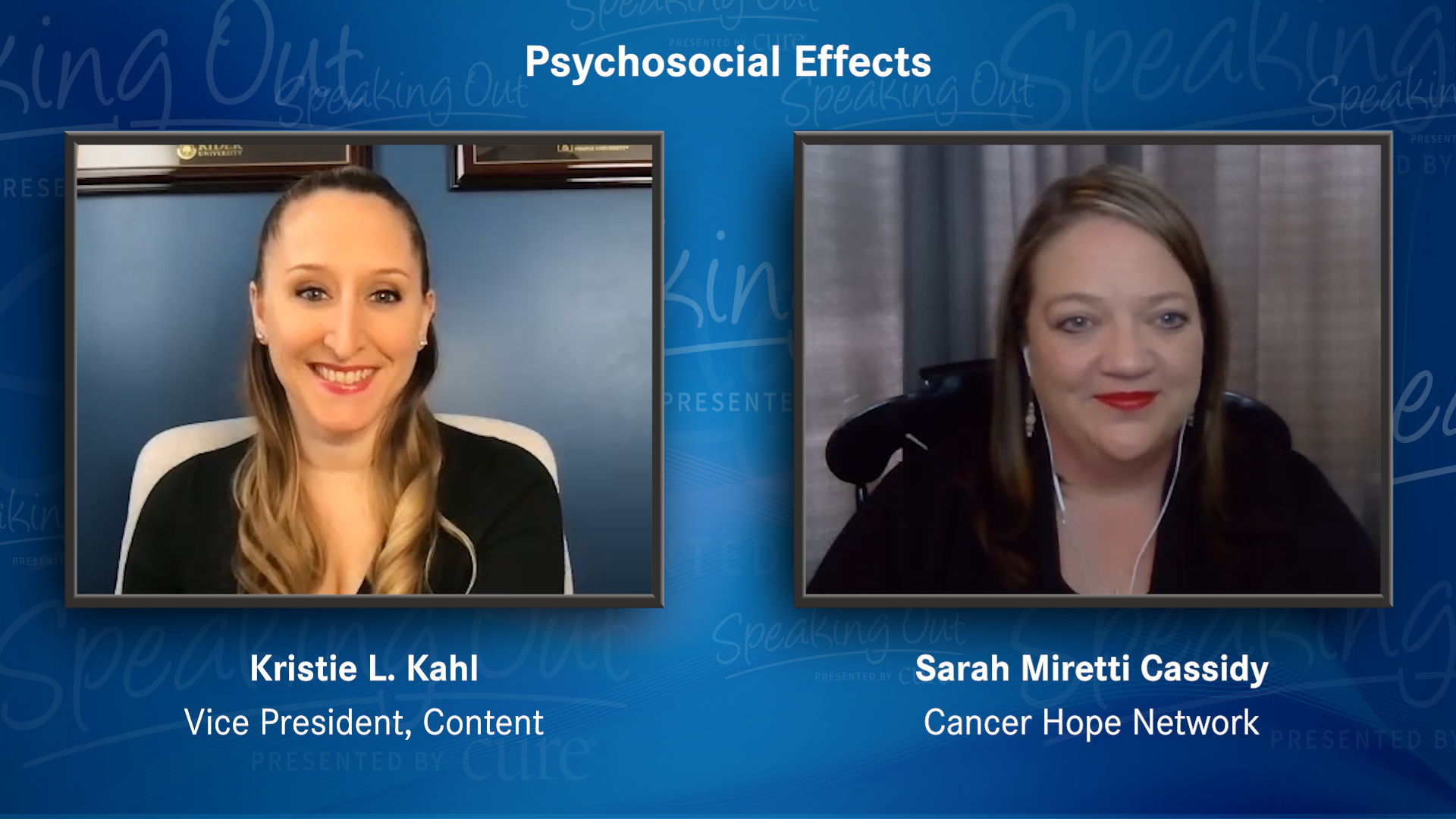- About Us
- Advertise / Support
- Editorial Board
- Contact Us
- CancerNetwork.com
- TargetedOnc.com
- OncLive.com
- OncNursingNews.com
- Terms & Conditions
- Privacy
- Do Not Sell My Information
- Washington My Health My Data
© 2025 MJH Life Sciences™ and CURE - Oncology & Cancer News for Patients & Caregivers. All rights reserved.
Caring for the Caregiver: Seeking Support Through Cancer Hope Network

Kristie L. Kahl is vice president of content at MJH Life Sciences, overseeing CURE®, CancerNetwork®, the journal ONCOLOGY, Targeted Oncology, and Urology Times®. She has been with the company since November 2017.
As part of its Speaking Out video series, CURE spoke with Sarah Miretti Cassidy, director of external affairs at Cancer Hope Network, about support for caregivers of patients with lung cancer.
Kristie L. Kahl: So we talked earlier about the psychological effects of a patient, but what kind of emotional effects can caregivers also experience?
Sarah Miretti Cassidy: They're quite a few. It's a wide range, right? Caregiving is wonderful and soul filling, and also exhausting and tiring and frustrating. And there can be a really wide range of emotions. If you're a caregiver, it probably means that you love that person enough to give of yourself, your time, your energy, to take care of them. And so someone you love is facing what is often a traumatic diagnosis. So you're trying to help them, to support them, but also to deal with your own emotions to deal with your own pain and fear and concern.
Kristie L. Kahl: I think it's common that caregivers put their loved one ahead of themselves more often than not when it comes to a cancer diagnosis. But why is it just as important to make sure that they're also taking care of themselves through this journey?
Sarah Miretti Cassidy: I think it goes back to that thing that we hear on planes, or that we heard on planes when we were still flying: Put your oxygen mask on first. Taking care of yourself empowers you to better take care of your loved one. You know, for many caregivers, there's a lot flying at them, right? They may be trying to keep the job that's providing them health insurance while still running home over lunch or taking time off. Suddenly you're learning a whole new language, right? Many of us, you know, you don't have cancer, and then you do right, there's not often a continuum. And so they're learning this entirely new world and trying to help advocate and explore. Wnd while they may be experts in many other areas of their life, unfortunately, , many of us aren't experts in caregiving. And so again, asking for help talking to someone looking for the resources, knowing that there's so many challenges that we can face. But there also are a lot of groups and individuals and experts and professionals who are there to help support.
Kristie L. Kahl: Can you discuss the types of support that we have available for caregivers and, in particular, what Cancer Hope Network has available?
Sarah Miretti Cassidy: So Cancer Hope Network provides a wide variety of support for caregivers. We will provide those peer matches. One thing that we've found with caregivers is that you're kind of subject to your loved ones schedule, right? You may need to wait to talk to someone until they're in bed or until they're settled or you have appointments. And so sometimes getting connected to a support group, while incredibly important, can be really difficult.
That's one of the benefits of talking to a Cancer Hope Network volunteer is that you can schedule that visit at a time and a place that's convenient. You can go down in the laundry room and sit by the dryer and have that quiet conversation if you need to. Or you can have it earlier, howver it happens, there's a lot of resources that are available outside of Cancer Hope Network, there are a ton of resources that are available to caregivers, whether that be through, you know, respite care, where they're getting a little bit of a break some of those apps and websites where you can share updates on your loved one so that you're not having to take 15 calls, you know, 15 people loving you enough to call and check in is wonderful. But having to say the same thing. 15 times can be really challenging. You know, those are some important places where people can find help. Sometimes it's practical stuff, right? Helping to schedule accepting meals, things like that, for many caregivers, we find that, you know, they've always been the person who's taking care, right. And so yes, I've got it, the I've got it, people. And that's wonderful and amazing and delightful, but it's also a chance we hear from patients that we hear from caregivers, accept the help.
One of our volunteers talks about how that was the biggest mistake she made, that her husband was first diagnosed, is that she was trying to I've got it. And when she accepted help, that was a place. It put her in a better place. It also was an opportunity to let the friends and family you know those people who are calling those people who are checking in, they want to do something. And it was a way to allow the folks who loved her husband who loved her to express that love, whether it was picking up the groceries or cooking something or you know, running errands, that can be a really important piece of support for
Kristie L. Kahl: To bring it all together, what is your biggest piece of advice for our caregiver audience who need to seek out support and haven't yet?
Sarah Miretti Cassidy: Ask for help, ask for help, ask for help. Talk to people. You don't have to suffer alone. You know, I was a caregiver for my mother-in-law when she was diagnosed with cancer. And at that point, I had been working at Cancer Hope Network for a couple of years. I was the marketing person at that time. And it was literally my job to go around the nation and say, here's why peer support is important. And here's how it can help. And all of the sudden, I took over that role. What was an intellectual knowledge became really personal. And for me connecting with a volunteer who had been a caregiver was really important, right?
Caregiving is the great honor of your life, right? You're helping someone that you love through something terrible, but it's also incredibly hard, and incredibly guilt-inducing, all of those things. And so talking to someone who could help me process those emotions was important. But it was also really practical. You know, asking for help, my volunteer, I have never forgotten it. It helped me figure out a way to move my mother-in-law so that it wouldn't cause her pain. It was a small piece of a conversation. But that has stuck with me through all these years. And so asking for help, whether it's admitting that you need help, or talking to someone can be a really life-giving helpful resource.
Transcription has been edited for clarity.
Related Content:




